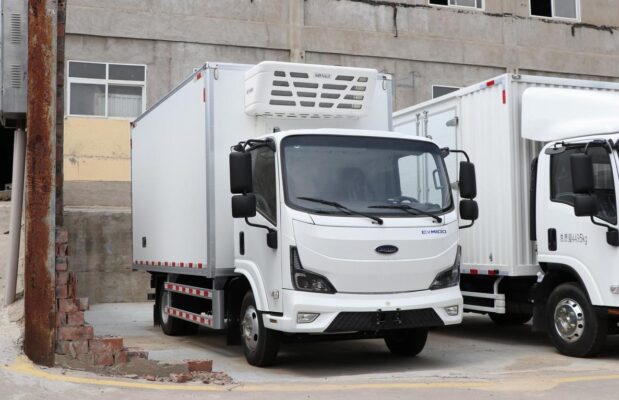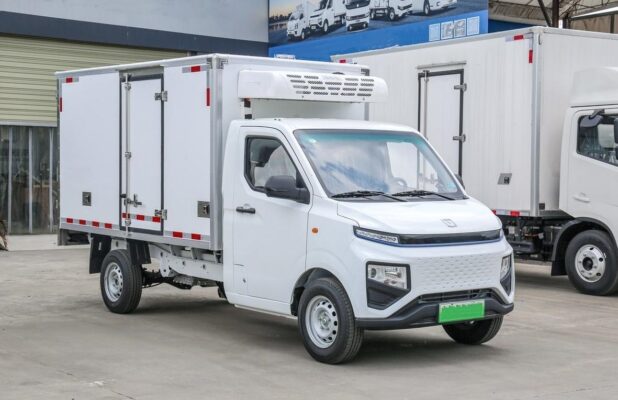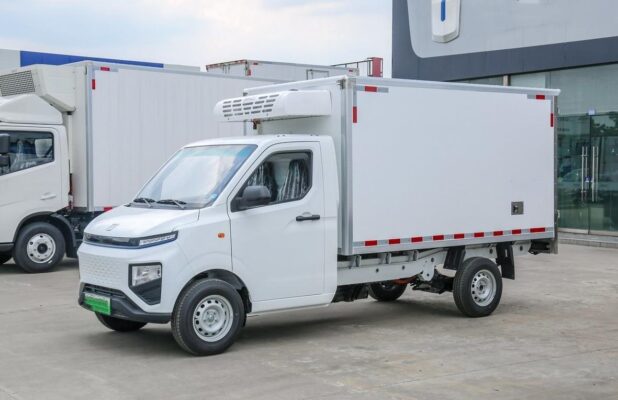Electric Truck News
Why Are People Buying Electric Pickup Trucks?
The surge in popularity of electric pickup trucks has become increasingly evident, reflecting a significant shift in consumer preferences within the automotive industry. As more people gravitate toward these vehicles, understanding the underlying motivations for this trend is crucial. This article explores the various factors driving the rise of electric pickup trucks, including environmental benefits, technological advancements, government support, economic advantages, and enhanced driving experiences.
Environmental Benefits
One of the primary reasons consumers are opting for electric pickup trucks is their environmentally friendly nature. Unlike traditional gasoline or diesel-powered vehicles, electric pickups are powered by electricity, which significantly reduces harmful exhaust emissions.
1. Reduced Emissions
Electric pickup trucks contribute to cleaner air by producing zero tailpipe emissions. This reduction in pollutants such as carbon dioxide (CO2), nitrogen oxides (NOx), and particulate matter is essential in the fight against climate change and urban air quality issues.
- Life Cycle Emissions: While there are concerns regarding the environmental impact of battery production and electricity generation, studies indicate that electric vehicles, including pickups, tend to have a lower overall carbon footprint throughout their lifecycle compared to internal combustion engine (ICE) vehicles.
2. Energy Efficiency
Electric pickup trucks are generally more energy-efficient than their gasoline counterparts.
- Efficiency of Electric Motors: Electric motors convert a higher percentage of electrical energy from the grid to power at the wheels—typically around 60-70% efficiency—while conventional engines often operate at around 20-30% ефикасност. This means electric vehicles make better use of the energy consumed, leading to a more sustainable mode of transportation.
Advancements in Charging Technology
The development and proliferation of charging infrastructure have made electric pickup trucks more convenient to own and operate.
1. Improved Range
With advancements in battery technology, the range of electric pickup trucks has seen significant improvements.
- Longer Distances: Many modern electric pickups can achieve ranges of 300 да 500 kilometers on a single charge, which satisfies the needs of most consumers. На пример, models like the Ford F-150 Lightning and the Rivian R1T offer impressive ranges that make them viable options for both daily commuting and recreational use.
2. Convenient Charging Options
The availability of charging stations has expanded rapidly, further facilitating the ownership of electric vehicles.
- Charging Infrastructure: The increase in fast-charging stations, which can charge a vehicle in as little as 30 minutes, provides added convenience for drivers. Furthermore, home charging solutions have become more accessible, allowing owners to charge their vehicles overnight.
Government Policy Support
Government policies have played a crucial role in promoting electric pickup truck sales. Many countries and local governments are implementing favorable policies to incentivize electric vehicle adoption.
1. Financial Incentives
- Tax Credits and Rebates: Various tax exemptions, rebates, and incentives significantly lower the initial purchase price of electric pickups, making them more appealing to consumers. These financial incentives can sometimes cover a substantial portion of the vehicle’s cost.
- Free Parking and Toll Exemptions: Additional perks such as free parking in certain areas and exemptions from toll fees further enhance the attractiveness of electric pickups.
2. Environmental Regulations
- Emissions Standards: Stricter emissions regulations are pushing consumers and manufacturers alike to consider electric vehicles. As regulations become more stringent, traditional fuel vehicles may incur higher costs due to compliance, making electric options more appealing.
Economic Advantages
In addition to environmental benefits, electric pickup trucks offer significant economic advantages over traditional gasoline-powered vehicles.
1. Low Maintenance Costs
Electric pickups generally require less maintenance than their ICE counterparts.
- Fewer Moving Parts: The simpler mechanical structure of electric vehicles—lacking traditional engines and complex transmissions—leads to fewer parts that can wear out or require repair. This simplicity translates to lower repair and maintenance costs over the vehicle’s lifespan.
- Longevity of Components: Electric motors and batteries typically have longer lifespans than traditional engine components. As a result, the need for frequent replacements is significantly reduced, saving owners money over time.
2. Elimination of Fuel Costs
Electric vehicles also eliminate the need for gasoline or diesel fuel.
- Cost-Effectiveness: With electricity prices generally lower than fuel costs, electric pickup truck owners can enjoy substantial savings on their monthly operating expenses. Furthermore, as the cost of electricity continues to decrease and the efficiency of charging technologies improves, these savings are expected to grow.
Enhanced Driving Experience
The driving experience of electric pickup trucks is another major factor driving consumer interest.
1. Performance Characteristics
Electric pickups are known for their high torque and rapid acceleration, providing a driving experience that many consumers find appealing.
- Instant Torque Delivery: Electric motors deliver maximum torque from a standstill, allowing for quick acceleration and responsive handling. This feature enhances the overall driving experience, making electric pickups fun and engaging to drive.
2. Quiet Operation
Electric vehicles operate much more quietly than traditional gas-powered trucks.
- Noise Reduction: The reduction of engine noise contributes to a more pleasant driving experience, allowing for smoother rides and a more serene cabin environment. This quietness is particularly appreciated in urban settings, where noise pollution is a concern.
Factors to Consider When Buying an Electric Pickup Truck
While the benefits of electric pickup trucks are compelling, prospective buyers should consider several factors before making a purchase.
1. Range and Charging Infrastructure
- Assessing Travel Needs: Buyers should evaluate their typical travel distances to select a model that aligns with their requirements. It’s essential to consider the availability and speed of local charging stations, as well as home charging capabilities.
2. Vehicle Price and Subsidy Policies
- Budgeting for Purchase: Prospective buyers need to consider their financial situation and research available government incentives that could lower the overall cost of the vehicle. Comparing different models and manufacturers can help determine the best fit for individual budgets.
3. Maintenance Costs and Brand Reputation
- Evaluating Long-Term Costs: It’s wise to investigate the maintenance history and reputation of various brands, ensuring a reliable and economical choice. Understanding the warranty terms and battery lifespan can also provide insights into future ownership costs.
Addressing Common Concerns
1. Charging Time
Charging time can vary based on the battery capacity and the type of charging equipment used.
- Home Charging: Standard home charging systems generally take about 6 да 8 hours for a full charge, but many electric pickups also support fast charging options that can provide substantial power in as little as 30 minutes.
2. Range Sufficiency
As mentioned earlier, the range of electric pickups has improved significantly.
- Adequate for Most Users: With ranges of 300-500 kilometers now common, many electric pickup truck models meet the travel needs of most consumers. Додатно, the growth of charging stations reduces range anxiety.
3. Maintenance Costs
- Affordability of Upkeep: The maintenance costs for electric pickups are generally lower than those for traditional fuel vehicles, as they do not have the same complex mechanical systems. This can lead to significant savings over the lifespan of the vehicle.
How to Choose the Right Electric Pickup Truck
When selecting an electric pickup truck, buyers should keep several considerations in mind.
1. Assessing Personal Needs
- Travel Requirements: Identifying personal travel needs and ensuring the selected model has adequate range and performance is crucial.
2. Availability of Charging Infrastructure
- Researching Charging Options: Evaluating the availability of charging stations and home charging capabilities can make a significant difference in the practicality of owning an electric pickup.
3. Comparing Models
- Gathering Information: Consumers should use online resources, media reports, and auto shows to compare various models. Evaluating factors such as range, performance, pricing, and available subsidies can aid in making an informed decision.
Conclusion
The growing trend of purchasing electric pickup trucks can be attributed to several compelling factors, including their environmental benefits, improved range, convenient charging solutions, government support, low maintenance costs, and enjoyable driving experiences. As technology continues to advance and charging infrastructure becomes even more widespread, it is likely that electric pickup trucks will gain further traction in the market.
By considering essential factors such as range, charging availability, vehicle price, and maintenance costs, prospective buyers can make informed decisions when choosing the right electric pickup truck for their needs. With their many advantages, electric pickups are poised to play a significant role in the future of transportation, appealing to a diverse range of consumers who prioritize sustainability, ефикасност, and performance.




